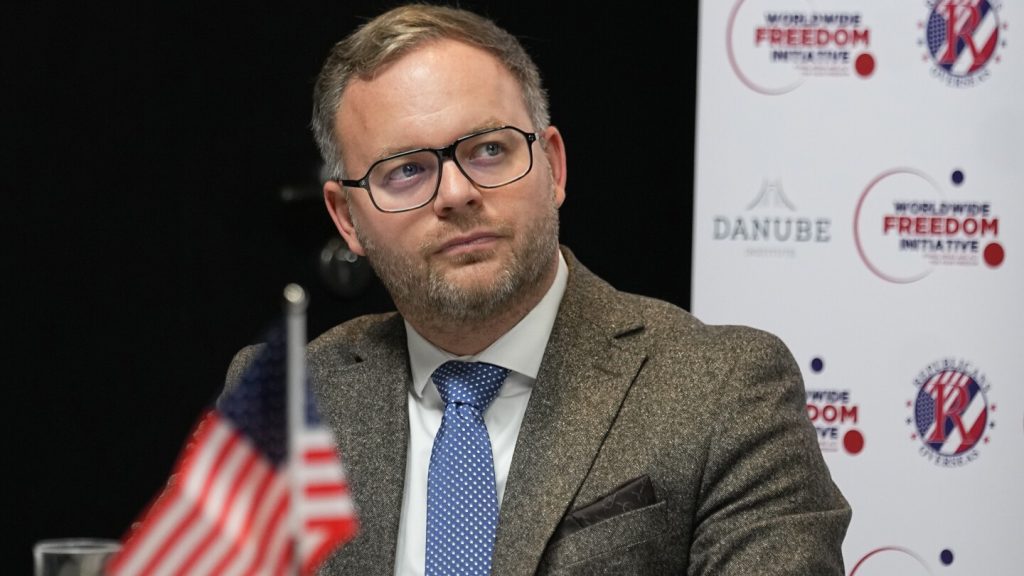Hungary’s top opposition figure has called for the resignation of one of Prime Minister Viktor Orbán’s closest aides, Balázs Orbán, over controversial statements he made regarding Hungary’s stance on a potential Russian invasion. Balázs Orbán suggested that Hungary would not have defended itself like Ukraine did in response to the Russian invasion, citing the country’s anti-Soviet uprising in 1956 as a lesson in prioritizing Hungarian lives over defense efforts. This statement has led to backlash from opposition leaders and the public, who see it as a betrayal of the sacrifices made during the 1956 revolution.
As the political director of the nationalist prime minister, Balázs Orbán has played a key role in shaping Hungary’s foreign and domestic policies, including its adversarial stance towards Ukraine. The government has been criticized for obstructing EU efforts to support Kyiv and impose sanctions on Moscow, leading to accusations that Hungary is advancing Russian interests and dividing the EU. The country’s historical anti-Soviet uprising in 1956 is revered as a symbol of Hungarian independence and self-determination, making the government’s close ties to Russia today controversial among many citizens who view it as a betrayal of the revolution’s ideals.
In response to the calls for his resignation, Balázs Orbán defended his statements, claiming they were taken out of context and blaming “pro-war propaganda” for misinterpreting his words. He emphasized the sanctity of the memory of the heroes of the 1956 revolution and reiterated Hungary’s call for an immediate cease-fire and peace talks in Ukraine. Prime Minister Viktor Orbán has faced criticism for his diplomatic visits to Russia and China, including a meeting with Russian President Vladimir Putin, which sparked controversy within the EU. Despite advocating for peace in Ukraine, the Hungarian government has not clarified its stance on territorial integrity or the future security of Europe and NATO allies.
The controversy surrounding Balázs Orbán’s statements highlights the complex political dynamics in Hungary, where historical events like the 1956 revolution continue to influence public sentiment and political decisions. The country’s alignment with Russia and its opposition to EU efforts in Ukraine have fueled accusations of undermining European unity and serving Russian interests. As the opposition and civil society demand accountability and transparency from the government, the Orbán administration faces mounting pressure to clarify its position on key geopolitical issues and address concerns about Hungary’s international relations. The outcome of this controversy could have far-reaching implications for Hungary’s foreign policy and its relationships within the EU and the broader international community.


